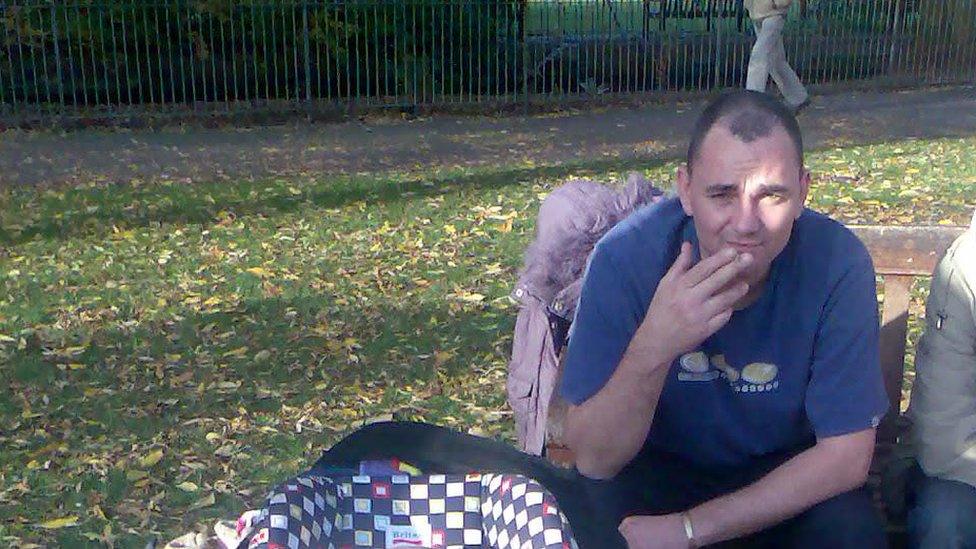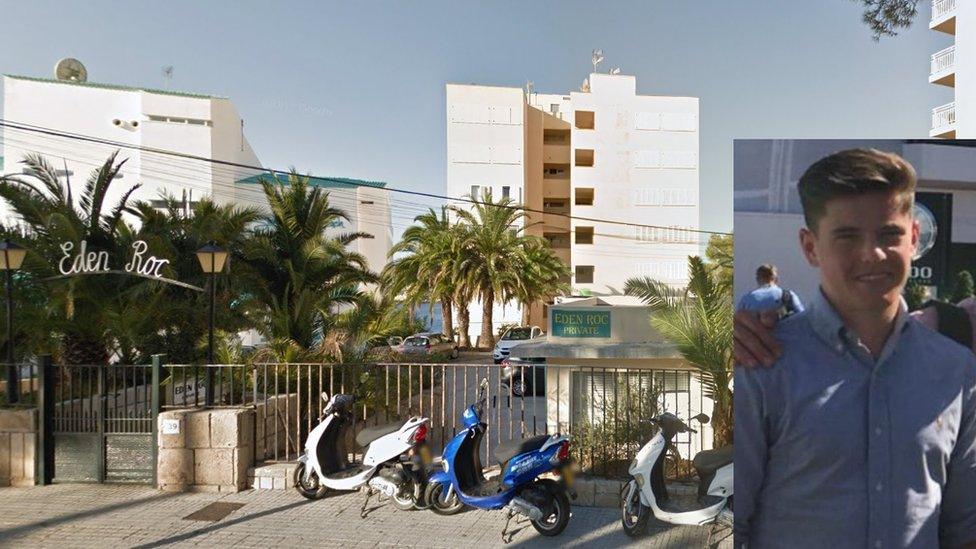Haverfordwest mother 'betrayed' after partner died abroad
- Published
Alison Barker said she has been let down by the Foreign Office
A mother-of-four whose partner died in suspicious circumstances in India has said she feels betrayed by the UK government.
The body of Andrew Raymond Rodick, 40, was found wrapped in a bed sheet and carpet in New Delhi in April 2014.
Alison Barker claims the Foreign Office did not support her after his death.
But a spokeswoman for the government department said: "Our staff work with dedication and empathy to support British nationals."
Ms Barker, from Haverfordwest, who has three children with Mr Rodick, claims she was "pressured" by the Foreign Office to agree to his cremation in India.
"They were absolutely useless, it was so bad," she told BBC Radio Wales' Eye on Wales programme. "All they did was pressure us to get rid of the body there and then."
She said: "I was by myself with three children and there was no help, nobody came round and said 'this is what you have to do now'. I was grieving and trying to be really strong for my kids as well."
Ms Barker is among those who have given evidence to an all-party parliamentary group on deaths abroad, set up in response to concerns about families being let down by consular services when a loved one dies while travelling overseas.
It is understood that, on average, between 70 and 80 British nationals are victims of homicide abroad each year.
The figure does not include British citizens living abroad, or suspicious deaths not confirmed as homicides to the UK government.

Andrew Rodick died in India in 2014
Chris Davies, Conservative MP for Brecon and Radnorshire, is vice chairman of the group, which he helped to establish after meeting the parents of Kirsty Jones, who was raped and murdered in a backpacking hostel in Thailand in August 2000.
"We must have a system where we can get the facts to the families as quickly as possible. One can do that knock on the door, explain to a family what may appear to have happened and then follow it up afterwards," he said.
"Sometimes we have seen weeks if not months have passed before any other contact is made with a family."
Ms Barker learnt of her partner's death from two Dyfed-Powys Police officers who called at her home. She claims her last direct communication from the Foreign Office was in the months immediately following the tragedy.
She obtained a partial copy of the post-mortem examination report in 2016 with the assistance of her local MP, Stephen Crabb, through the Indian High Commission, but it did not include any toxicology results or cause of death.
She was sent the final autopsy findings and toxicology report last week, which states the cause of death was "Pregabalin poisoning".
Pregabalin - a medication used to treat epilepsy and anxiety - was found in Mr Rodick's jeans.

The medication Pregabalin was found in Mr Rodick's jeans
Ms Barker said she does not accept the findings and is angry it took so long for her to receive the report, which was sent to the Foreign Office in August.
"I'm furious at the lack of consistent care and updates. Why has it taken so long for this to filter through to me?" she said.
The Foreign Office has apologised to her for the delay in sharing the report with her, and told her the case is now closed.
A spokeswoman said: "Where a death has occurred in violent circumstances, we will raise our interest with the local authority in the relevant country and request regular updates on any investigation or trial.
"We welcome feedback from British nationals who have received consular assistance and use that feedback to improve our services and staff training so we can provide the best possible assistance."
You can hear more on this story in Wednesday's Eye on Wales on BBC Radio Wales at 18:30 GMT and on BBC Sounds.
- Published5 November 2018

- Published6 August 2018

- Published16 July 2018

- Published15 July 2018
